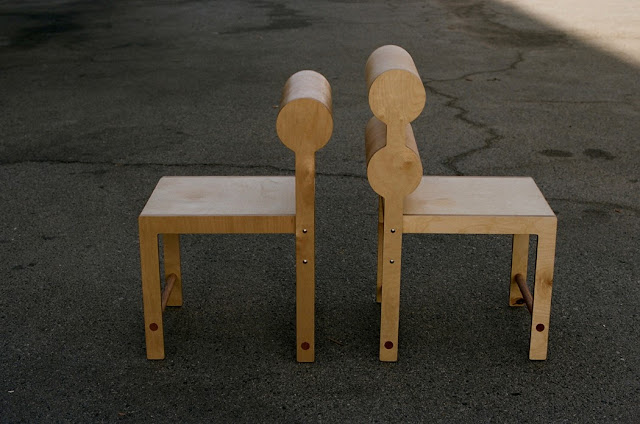Who? Shin Okuda, founder of furniture and design studio Waka Waka, hails from Japan, but moved to Los Angeles 20 years ago. "I had been offered a strange and strange job in Arizona," he explains. "It was as a travel agent, back then, there were a lot of Japanese businessmen who went to Scottsdale to play golf, so I was only looking after the golfers, I stayed in Arizona for two months and then I moved to Los Angeles to see how things would go. "





Then, from 2003, Okuda found a job making sculptures for fine artists. "I worked in different art studios for some years, in 2009 I started doing my own things, but it was not sculpture, I started making furniture". That same year, Okuda met his wife Kristin Dickson, who had just opened a commercial space on Sunset Boulevard called Iko Iko. "When it opened, I went to see the store and I made friends with it, and then I started making furniture for its events, people started getting interested in buying it, and Kristin said that she should find a name for what I do," she says. Okuda "I wanted to do something that was compatible with Iko Iko's name, and we were listening to Fela Kuti Waka Waka's song in the car, we both said immediately 'that's exactly the right name!' "

Because I want it? Okuda's work - from coffee tables and chairs to large-scale shelves - is made by hand from Baltic birch plywood. "This material comes from Japan, it's very simple and white, without much grain, because wood does not have much character, I consider it a blank sheet of white paper," he says. Subsequently, the custom-made pieces available for purchase in Waka Waka are easily inserted in various residential and commercial spaces, without attracting attention among existing interiors.
Despite its penchant for simplicity, Okuda's work is far from boring, thanks to an injection of Sottsassian fantasy into some of the cylindrical design elements. "While I like Bauhaus and the simplicity of the architecture of a Japanese tea room, I also like Memphis Group a lot," he reiterates. Subsequently, Okuda has recently started experimenting with color injections through lacquered and Formica paints, although this is not without difficulties. "Actually, I'm colorblind, so my wife has to help me! So I avoided using colors before, but so far it has worked very well."

In the nine years that it has been in operation, Waka Waka has garnered a cult following, especially through word of mouth. "People usually come to me because they've seen my work online or in real life," explains Okuda. This was the case of the twins Posternak, Tanya and Zhenya, who saw the Waka Waka chairs on Instagram and were immediately interested in a collaboration (the result of which illustrates this feature). "It all comes down to detecting one of your chairs in the depths of Instagram," they explain. "A year later, we both met Shin at his studio in Frogtown, Los Angeles, and he was so direct and warm, with a great sense of humor and a couple of dusty Reeboks! We love the elegance and functionality of the pieces manufactured by Shin, is a sincere simplicity that is so difficult to find anywhere else. "









